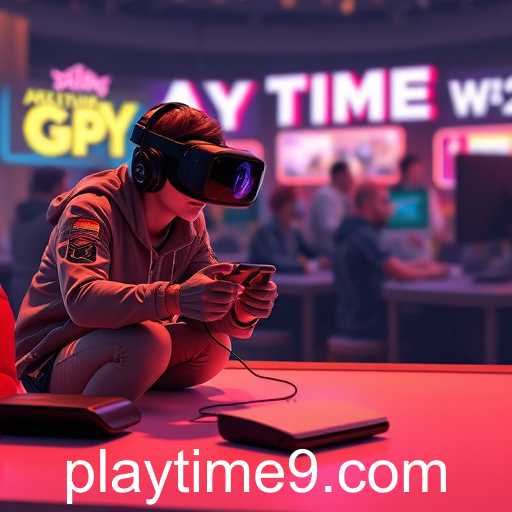Explore the latest trends and dynamics in the gaming industry as 2025 brings new opportunities and challenges for players and developers alike.
The gaming industry has witnessed phenomenal growth and transformation in recent years. As we step into 2025, the digital landscape continues to evolve, introducing new trends that redefine the concept of playtime for millions of gamers worldwide. With technological advancements paving the way for innovative gameplay experiences, the industry stands at the brink of yet another dynamic era.
Virtual reality (VR) and augmented reality (AR) are at the forefront of this evolution. As hardware becomes more accessible and affordable, more gamers are immersing themselves in detailed, lifelike environments. Game developers are capitalizing on this trend by designing worlds that blur the lines between reality and fiction, offering players a heightened sense of presence and engagement.
Another significant trend is the integration of artificial intelligence (AI) in gaming. AI-driven algorithms are enhancing non-player character (NPC) interactions, creating more responsive and adaptive opponents. This shift not only enriches the single-player experience but also transforms multiplayer dynamics, as AI can manage larger populations of virtual entities, leading to richer storytelling and more complex game ecosystems.
The rise of cloud gaming marks another pivotal change in how users engage with content. As internet infrastructure improves globally, cloud platforms enable users to stream high-quality games on demand, eliminating the need for expensive hardware. This transition democratizes access, allowing a broader audience to participate, including those from regions where high-end gaming PCs and consoles were once economically out of reach.
Despite the excitement surrounding these advancements, challenges remain. Concerns around data privacy, long-term screen time effects, and the environmental impact of server farms are issues the industry must address. Developers and policymakers are increasingly focusing on sustainable practices and ethical considerations to ensure that the growth of the gaming industry is both responsible and inclusive.
The community aspect of gaming is also evolving. With social features becoming more integral to game design, players are forming diverse, inclusive online communities. These spaces not only foster camaraderie and competition but also spark conversations about culture, politics, and technology, illustrating gaming's role as a powerful social platform.
As we navigate through 2025, it's clear that the gaming industry's trajectory is not just about entertainment. It's about innovation, inclusivity, and the exploration of new frontiers that redefine playtime for a digital generation eager to experience the future of games.




